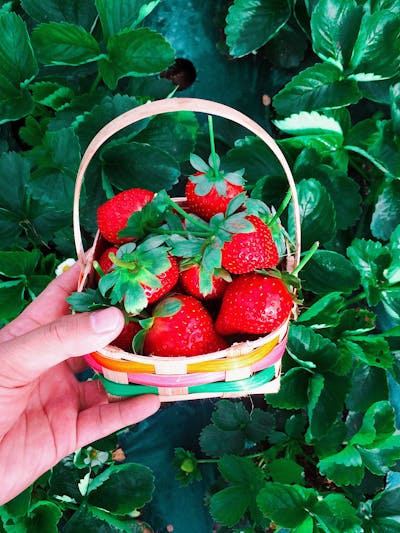Raising Hope: Nurturing Positivity in Challenging Times in 2025
raising hope, hope, positivity, resilience, optimism, mental health, well-being, positive mindset, gratitude. strategies, personal growth

Raising Hope
In a world often fraught with challenges, the ability to cultivate hope emerges as a powerful tool for navigating adversity. This blog post, titled “RAISING HOPE,” aims to unravel the significance of maintaining a positive mindset, backed by research and insights. Join us on a journey to discover the transformative power of hope and the tangible benefits it can bring to your life.
1. Understanding the Essence of Hope

Hope is more than just wishful thinking; it’s a dynamic cognitive process that involves setting realistic goals, envisioning pathways to achieve them, and being motivated to pursue them. Research, including studies from the Journal of Positive Psychology1, suggests that cultivating hope is associated with greater well-being and increased resilience.
2. Table summarizing the key differences between hope and hopelessness:
| Feature | Hope | Hopelessness |
| Definition | A positive expectation or feeling that things will turn out for the best | A feeling of despair and resignation that nothing will ever improve |
| Emotional state | Optimism, confidence, belief | Pessimism, despair, defeatism |
| Cognitive approach | Sees challenges as opportunities, believes in their ability to overcome obstacles | Sees challenges as insurmountable, believes they are powerless to change their situation |
| Motivational impact | Drives action, perseverance, and resilience | Leads to inaction, apathy, and giving up |
| Impact on well-being | Promotes mental and physical health, enhances resilience and coping mechanisms | Contributes to depression, anxiety, and stress |
3. Here is a more detailed explanation of the key differences between hope and hopelessness:
- Hope

Hope is a positive expectation or feeling that things will turn out for the best. It is a powerful emotion that can help us to cope with challenges, achieve our goals, and live a more fulfilling life. Hope is often associated with optimism, confidence, and belief in our ability to overcome obstacles.
- Hopelessness

Hopelessness
Hopelessness is a feeling of despair and resignation that nothing will ever improve. It is a debilitating emotion that can lead to inaction, apathy, and giving up. Hopelessness is often associated with pessimism, despair, and defeatism.
- Impact on well-being
Hope has a positive impact on our well-being. It can help us to cope with stress, maintain our mental and physical health, and enhance our resilience. Hope can also motivate us to take action and achieve our goals.

Hopelessness hurts our well-being. It can contribute to depression, anxiety, and stress. Hopelessness can also lead to self-destructive behaviours and a decline in physical health
Hope and hopelessness are two very different emotions with a significant impact on our thoughts, feelings, and behaviours. Choosing to cultivate hope can make a profound difference in our lives, leading to greater well-being, resilience, and success.
In a world that often tests our resolve, raising hope becomes a beacon of light guiding us through the darkest of times. Whether facing personal challenges, global crises, or the uncertainties of the future, the transformative power of hope is undeniable.
4. The Impact of Hope on Mental Health

Maintaining a hopeful outlook has been linked to numerous mental health benefits. Studies published in the Journal of Counseling Psychology2 emphasize that hopeful individuals are better equipped to cope with stress, experience lower levels of anxiety and depression, and have a more positive overall mental health status.
5. Nurturing Hope in Daily Life
- Set Realistic Goals:

Raising Hope.
Start small and create achievable goals. Each accomplishment, no matter how minor, contributes to a sense of hope and accomplishment.
- Practice Gratitude:

Cultivating gratitude can shift your focus from what’s lacking to what you have. Regularly take time to reflect on the positive aspects of your life.
- Surround Yourself with Positivity:

Engage with uplifting content, surround yourself with positive influences, and build a support system that fosters optimism.

- Embrace Challenges as Opportunities:
Instead of viewing challenges as insurmountable obstacles, see them as opportunities for growth and learning. This shift in perspective can foster resilience.
6. The Science of Optimism
Optimism, closely tied to hope, has been extensively studied for its impact on health and well-being. According to research published in the American Journal of Epidemiology3, individuals with an optimistic outlook tend to live longer, have better cardiovascular health, and are more likely to adopt healthy lifestyle habits.

7. Building Resilience through Hope
Resilience, the ability to bounce back from setbacks, is a key component of a hopeful mindset. Studies from the Journal of Personality and Social Psychology4 suggest that cultivating hope contributes to the development of resilience, enabling individuals to navigate challenges with greater ease.
Conclusion:
Elevating Your Life through Hope by adopting practical strategies into daily life, and appreciating the science-backed benefits, you can embark on a journey of RAISING HOPE—one that leads to a more positive, resilient, and fulfilling life.
Citations:
- Snyder, C. R. (2002). Hope theory: Rainbows in the mind. Psychological Inquiry, 13(4), 249-275. ↩
- Lopez, S. J., & Snyder, C. R. (2011). The Oxford Handbook of Positive Psychology. Oxford University Press. ↩
- Kim, E. S., Park, N., Peterson, C. (2011). Dispositional optimism protects older adults from stroke: the Health and Retirement Study. Stroke, 42(10), 2855-2859. ↩
- Masten, A. S., & Reed, M. G. (2002). Resilience in development. Handbook of positive psychology, 74-88. ↩
Top 15 High Protein Vegan Recipes: No More Eating a Chicken a Day
Joy Versus Happiness,Empower Your Understanding the Difference in 2025


